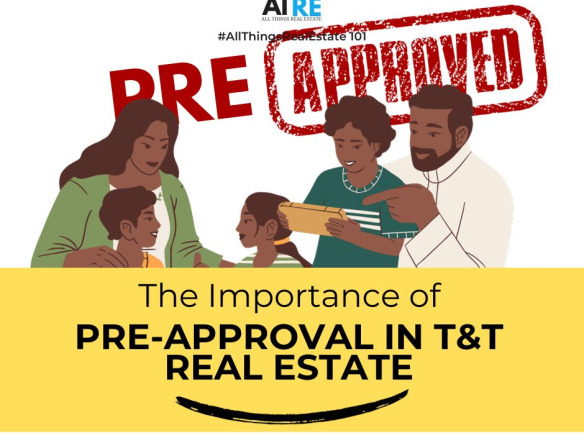Dreaming of affordable housing, just a home that’s both almost perfect and within your financial reach? Picture unlocking the door to your own house without feeling the weight of financial strain. In this comprehensive guide, we’re diving deep into the secrets of affordable housing—strategies that transform aspirations into tangible keys to homeownership.

The Predicament of Affordable Housing
Affordable housing isn’t just a Trinidad & Tobago, Caribbean, or an individual concern—it’s a global challenge woven from the threads of skyrocketing costs, restricted supply, and the ever-fluctuating landscape of real estate markets. Mastering this intricate puzzle is the first step to overcoming these obstacles.
Crafting Your Budget Blueprint
At the heart of affordable housing lies the skill of budgeting. Dive into your financial landscape, mapping out income sources, dissecting expenses, and devising strategies for potential savings. Crafting practical and achievable financial goals becomes your roadmap through the maze of housing options.
Exploring Diverse Housing Options
Beyond the traditional brick-and-mortar houses, discover unconventional yet innovative alternatives. From eco-friendly tiny homes to collaborative co-housing communities and flexible rent-to-own schemes, these options redefine affordability while offering distinct and fulfilling lifestyles.
Exploring Diverse Housing Options
Beyond the traditional brick-and-mortar houses, discover unconventional yet innovative alternatives. From eco-friendly tiny homes to collaborative co-housing communities and flexible rent-to-own schemes, these options redefine affordability while offering distinct and fulfilling lifestyles.
Meet Sarah, a young adult who found her ideal haven in a vibrant co-housing arrangement, fostering meaningful connections while significantly reducing housing expenses.
Did you know?
The demand for tiny homes has surged by 67% in the last five years (2018-2023)?
Exploring Diverse Housing Options: Beyond the traditional brick-and-mortar houses, discover unconventional yet innovative alternatives. Did you know that the demand for tiny homes has surged by 67% in the last five years? From eco-friendly tiny homes to collaborative co-housing communities and flexible rent-to-own schemes, these options redefine affordability while offering distinct and fulfilling lifestyles.
Government Programs: Accessing Opportunities
Governments globally extend a plethora of programs, grants, and subsidies aimed at fortifying housing affordability. Dive into these resources, understand eligibility criteria, and grasp the substantial benefits they offer aspiring homeowners. Does Trinidad and Tobago provide this kind of assistance? Learn more here.
For example, John’s homeownership dream materialized by leveraging a government-backed scheme, allowing reduced down payment assistance that made homeownership financially viable.
Strategic Choices
The Impact of Location: Location transcends mere coordinates; it’s a pivotal factor in affordability. Explore the significance of making informed decisions about neighborhoods, considering amenities, accessibility, and potential growth. Thoughtful location choices wield substantial influence over financial feasibility. It may mean living further away from expensive cities. Check out the prices per square feet of average property in the neighborhood can help you gauge the situation.
In case of Maria, she strategically chose an up-and-coming neighborhood, enjoying reduced prices without compromising essential amenities, successfully realizing her homeownership dream.
Affordable housing isn’t a far-off mirage; it’s an attainable reality. Through meticulous budgeting, exploring diverse housing options, accessing government support, and making informed location decisions, homeownership becomes a tangible prospect. Balancing ambition with financial stability is key. Armed with these strategies, step into the realm of affordable homeownership confidently and purposefully!
What percentage of income should be allocated to housing expenses?
Experts suggest allocating around 25% to 30% of your monthly income to housing expenses. This includes rent or mortgage payments, utilities, and insurance. For instance, your monthly income is $10,000 then ideally your total housing expenses should not exceed $3,300.
How do government housing programs assist in affordable housing?
Government programs offer various aids such as down payment assistance, low-interest loans, and subsidies, making homeownership more accessible for eligible individuals or families. Check with your local municipal or government for such programs.
Are there overlooked housing options beyond traditional homes?
Absolutely! Tiny homes, co-housing communities, and rent-to-own schemes are gaining popularity due to their affordability and unique living experiences.
How crucial is budgeting in achieving affordable housing?
Budgeting is the backbone of affordable housing. Understanding your financial landscape, managing expenses, and setting realistic goals are pivotal steps in achieving housing affordability.

“Start by budgeting and understanding your financial landscape.”
The Challenge of Affordable Housing is Real
The poorest individuals facing significant housing challenges often rely on various government and non-profit initiatives tailored to assist those in dire need. Here are some ways the poorest of the poor can access housing.
Additionally, discovering reliable housing solutions for the most vulnerable is not just a need but a critical pursuit for any society. For those facing significant housing challenges, securing a place to call home can feel like an insurmountable obstacle.
Below, we unveil actionable insights and resources aimed at addressing the housing needs of the most underserved. From government initiatives to transformative non-profit efforts, we delve into pathways designed to provide shelter and stability for those in urgent need. Join us as we explore vital strategies and programs tailored to empower the most economically challenged individuals in finding safe and secure housing.
Government Housing Programs: Many governments have specific programs aimed at providing housing for the poorest sections of society. These initiatives may offer subsidized housing, rental assistance, or low-income housing options. Learn here what Trinidad and Tobago Government has in place for you.
Non-Profit Organizations: NGOs and charitable organizations often work tirelessly to provide shelter and housing solutions for the most vulnerable populations. They may build low-cost housing or offer rental assistance programs.
Shelter Programs: Homeless shelters and transitional housing programs cater to those in immediate need of shelter. While not permanent solutions, they offer a safe place to stay while individuals work toward more stable housing.
Community Land Trusts: These initiatives secure land for affordable housing, often in perpetuity, ensuring that housing remains affordable for generations. They can partner with local communities to create housing opportunities.
Microfinancing and Housing Cooperatives: Some programs facilitate access to microfinancing or help establish housing cooperatives, empowering communities to collectively build or acquire affordable housing.
Supportive Housing Programs: For individuals facing homelessness due to complex issues like mental health or substance abuse, supportive housing combines housing with supportive services to help them regain stability.
International Aid and Development Programs: In regions affected by poverty and housing crises, international aid and development organizations often initiate projects aimed at improving housing conditions for the poorest communities.
Public-Private Partnerships: Collaboration between governments, private entities, and NGOs can result in innovative housing solutions, leveraging resources and expertise to provide housing for the most vulnerable.
In conclusion, these solutions aim to address the housing needs of the poorest individuals and families, ensuring they have access to safe and decent housing despite financial limitations. However, there’s still a pressing need for more comprehensive and sustainable approaches to ensure housing security for everyone.
Are you a first-time homebuyer? Here 5 FREE tips on how to become more successful.





Join The Discussion